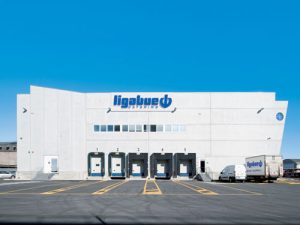 The Ligabue Group has acquired Maas Shipstores, a company established in 1946, which operates at Rotterdam Port and provides ship supply, transport & logistics services, technical and engine parts supply and replacement parts for merchant, cargo, commercial and pleasure vessels.
The Ligabue Group has acquired Maas Shipstores, a company established in 1946, which operates at Rotterdam Port and provides ship supply, transport & logistics services, technical and engine parts supply and replacement parts for merchant, cargo, commercial and pleasure vessels.
The Group says the move is part of the company development strategy, allowing it to consolidate its presence at Rotterdam Port, which is destined to become an increasingly important area for Group supplies to enterprises in Northern Europe.
The activity acquired has a turnover of around €30 million and a workforce of 70 people. The new company, which is the result of an Italo-Dutch partnership, will become one of Rotterdam Port’s leading players. The know-how of Maas Shipstores and its logistics platform will be combined with the capacity and competences of the Ligabue Group to develop additional and increasingly modern services for its international clientele.
“We are extremely proud and happy to announce this acquisition, which marks an important step in the Ligabue Group strategy for both the Ship Supply division and the other business lines. We are certain that integration of Maas into the Group will proceed in parallel with development of business and organisational synergies. This integration will be successfully completed thanks to the considerable organisational know-how of Rotterdam Port and a company culture which is very similar to our own,” ,” said Inti Ligabue, CEO of the Group which bears his name.
The Ligabue Group – with annual revenues of €300 million (70% of which obtained overseas), up 10% on 2016 – is a historical player in the food service sector, specialised in supply and catering services for the shipping sector and energy resources industry.
It started operating in Venice in 1919 and provides supply, catering and facility management services – including various integrated solutions such as housekeeping or maintenance – primarily for maritime operators such as cruise ships, ferries and cargo vessels, but also for companies operating in the Oil & Gas, mining and construction sectors, such as off shore platforms and on shore fields in remote areas.
